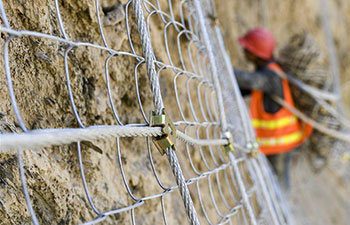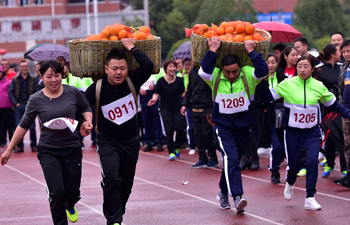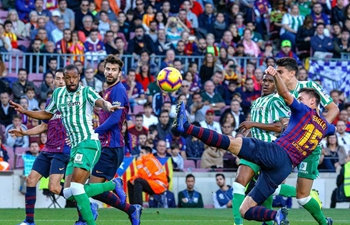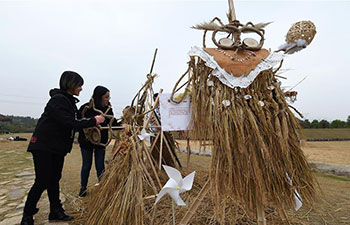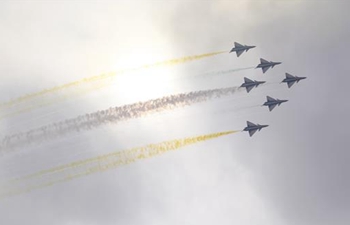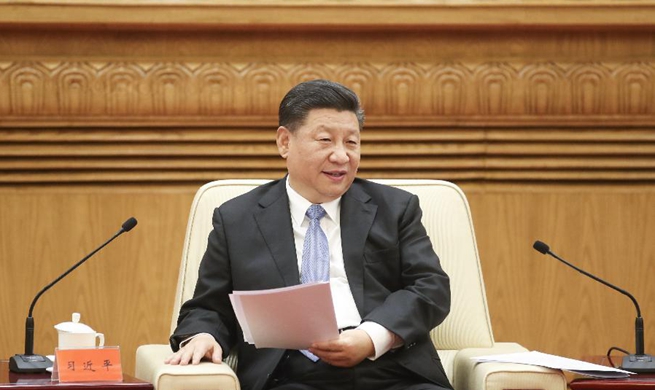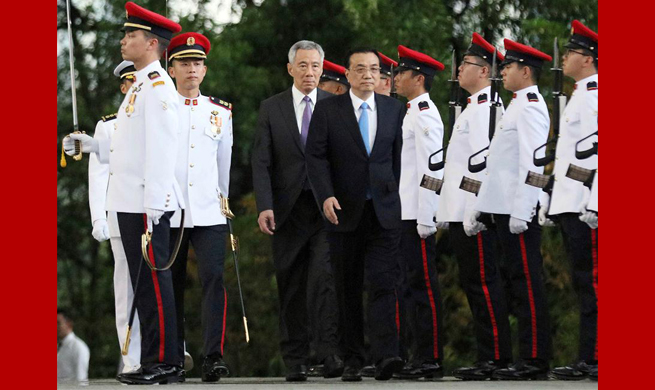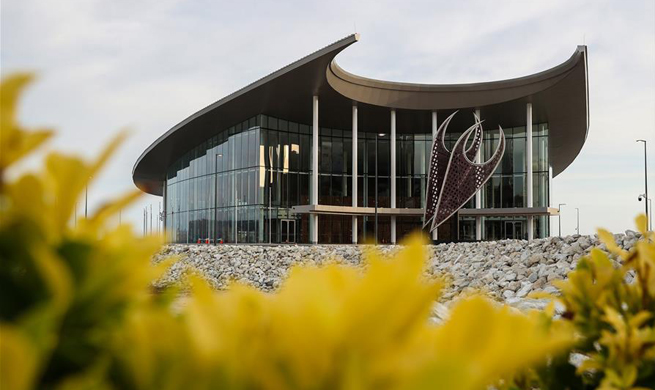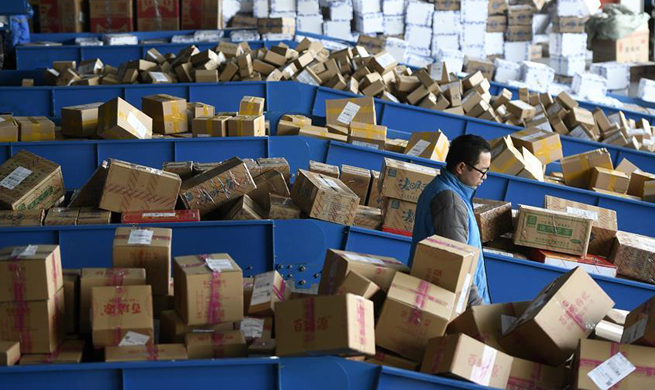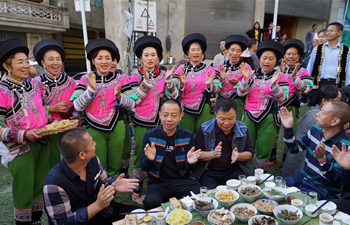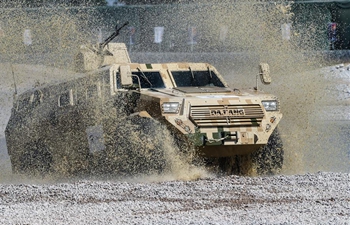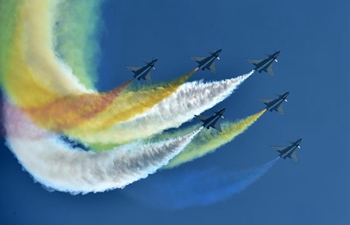by Alessandra Cardone
PALERMO, Italy, Nov. 12 (Xinhua) -- A two-day Conference for Libya kicked off in Italy's southern city of Palermo late Monday, drawing key Libyan and international actors in an effort to support a fresh United Nations' stabilization plan.
Participants included Libyan Prime Minister Fayez al-Sarraj, Head of the High Council of State Khalid al-Mishri, President of the House of Representatives (HoR) Ageela Saleh, and UN Envoy for Libya Ghassan Salame.
Some 38 delegations -- comprising heads of state and government and foreign ministers from 30 countries -- were taking part in the summit, a representative for the Italian government said just ahead of the first arrivals on Monday evening.
They would include representatives from France, Russia, China, United States, Germany, Egypt, Saudi Arabia, and United Arab Emirates among others, as well as from the European Union (EU), the Arab League, the World Bank, and the International Monetary Fund.
SUPPORTING NEW UN PLAN
"This conference has been organized as a contribution to the stabilization process within the framework of the United Nations," Prime Minister Giuseppe Conte said in a short declaration ahead of the opening ceremony.
Conte referred to the new plan unveiled by Salame few days ago, which called for a general vote to be held in Libya in spring 2019.
Elections would be preceded by a national conference in the first weeks of next year, in order for all Libyans parties to express "their vision for the transition" that was to be implemented through polls.
In an interview with La Stampa daily earlier in the day, Conte also stressed the plan of the UN envoy was "in line with the goals of the Italian initiative."
Nonetheless, the conference would also provide Italy with a chance to take again a lead in the international efforts to support Libya's reconciliation, after Libyan factions did not fulfil the commitments made in a meeting organized by France in Paris in May.
At that previous attempt in favour of reconciliation, Libyan parties had pledged to hold elections by Dec. 10.
In Europe, Italy and France were the two countries most interested in playing a role in the peace process in Libya, each of them with a different -- and sometime colliding -- agenda.
Nevertheless, they added to other regional and global actors interested in stabilizing the oil-rich northern African country.
UNCERTAINTY AROUND SOME KEY ACTORS
Yet, the conference opened amid mixed expectations about its possible concrete outcome.
The uncertainty about the presence here of general Khalifa Haftar -- the military commander of Libya's eastern-based army -- lasted all throughout Monday.
By evening only, unofficial sources here told reporters that Gen. Haftar was "on a flight towards Palermo, to take part in the summit."
Analysts warned the clear reluctance of one of Libya's major actors to attend the conference could prove a major weakness of the initiative. The involvement of all parties was seen as most necessary, given Libya's current level of fragmentation.
However, some experts also warned the presence or absence of general Haftar -- or any other Libyan actor alone, was not to be overestimated.
"The role of Haftar role is very important, but I would like to note that he does not represent the whole Libya, which also has a government recognized by the UN," Andrea Margelletti, president of Rome-based Center for International Studies (CeSI), told Xinhua.
The senior analyst specified the high number of Libyan and international representatives attending the meeting in Palermo was already an "extraordinary" signal.
"My strong hope is that the conference would provide a demonstration of common support for a united Libya, and possibly a joint declaration in favor of the UN new plan," he said.
A FOCUS ON OIL RESOURCES, SECURITY
The conference may offer the right space for UN envoy Salame to unveil further details of his plan, and also for focusing talks on two issues crucial to the peace process: security and economic reforms.
"Palermo is a relevant occasion to mobilize a unified international community, for example in supporting the training of Libyan security forces," Salame told La Repubblica newspaper ahead of the opening ceremony.
"In the medium-term, Libya will need to unify and rebuild a professional national army. Plus, Palermo may give the opportunity to discuss the crucial issue of the redistribution of the Libyan wealth," he added.
Over seven years after former ruler Muammar Gaddafi was toppled in 2011, Libya remains politically split despite a UN-sponsored peace agreement in 2015.
Meanwhile, the country has also divided along tribal lines, while turning into a key hub for the trafficking of hundreds of thousands of migrants and asylum-seekers bound for Europe.

